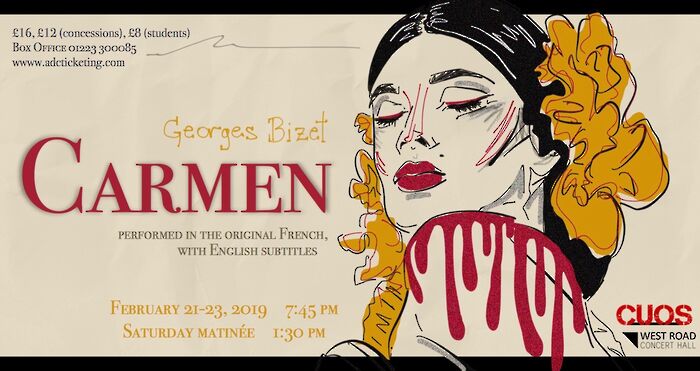Articulations at King’s College Chapel
Alexander Brady is blown away by a brilliantly constructed exploration of the relationship between speech and music
For an hour-long programme spanning just shy of a thousand years of music, King’s College Music Society’s Articulations was put together with masterful cohesiveness. Works by Hildegard von Bingen, Monteverdi, Schoenberg, and Caroline Shaw were interspersed with selections from Georges Aperghis’s Recitations, all chosen by Leia Devadason to explore the relationship between speech and music.
Articulations was put together with masterful cohesiveness
Aside from the Recitations, the pieces were in chronological order, and began with Hildegard von Bingen’s Antiphonae de Spiritu Sancto. By no means a straightforward piece in the first place, to open the proceedings with an antiphon like this was a bold choice, but one which seemed to pose no difficulty for Kaamya Varagur. The deftness and assurance of Varagur’s performance meant that the risk of it coming across simply as a palate-cleanser for the pieces to follow was confidently avoided.
Beatrix Swanson Scott’s Addio, Roma from Monteverdi’s opera L'incoronazione di Poppea was wonderfully gentle and restrained, and was supported well by Devadason’s accompaniment on the harpsichord. Schoenberg’s Pierrot Lunaire (Part I) was likewise excellent, the challengingly independent parts strung together with verve by Trojan Nakade’s conducting and the drama of the sprechstimme.
The first and fourth movements of Caroline Shaw’s 2013 Pulitzer Prize winning Partita for 8 Voices concluded the programme, and the complex interweaving of spoken and sung passages was handled with thrilling and joyous ease by Devadason’s conducting.
The complex interweaving of spoken and sung passages was handled with thrilling and joyous ease
Amongst these other superb performances, the highlight was Georges Aperghis’s Recitations. The handling of its breathy Francophone mutterings, soaring, dancing figures, vocal fry, and myriad other staggeringly difficult techniques was breath-taking, and deserves special mention.
Despite contrasting the medieval, the baroque, the modern, and the postmodern, the thematic unity of Devadason’s programme meant that the stylistic eclecticism was no issue. Pierrot Lunaire’s sprechstimme, the extended vocal techniques of Recitations, and the complex bubbling swarms of spoken lines in the Partita for 8 Voices provided an impressively broad coverage of ways in which speech and music can be intertwined, held together by a clear thematic focus.
The relevance of Hildegard von Bingen’s antiphon and Monteverdi’s Addio, Roma in this respect was more opaque to me, but they did not stand out overtly, and functioned well as more nascent explorations of the capabilities of the voice. And while I have reservations about the acoustic suitability of the King’s College Chapel for larger choral and orchestral works, the setting was ideal for these smaller-scale pieces.
Articulations was a stunning coming together of conceptual creativity and musical talent, and it bodes well for similarly ambitious and challenging projects to be put on by the King’s College Music Society in the future.
 Comment / Plastic pubs: the problem with Cambridge alehouses 5 January 2026
Comment / Plastic pubs: the problem with Cambridge alehouses 5 January 2026 News / Cambridge businesses concerned infrastructure delays will hurt growth5 January 2026
News / Cambridge businesses concerned infrastructure delays will hurt growth5 January 2026 News / New movement ‘Cambridge is Chopped’ launched to fight against hate crime7 January 2026
News / New movement ‘Cambridge is Chopped’ launched to fight against hate crime7 January 2026 News / AstraZeneca sues for £32 million over faulty construction at Cambridge Campus31 December 2025
News / AstraZeneca sues for £32 million over faulty construction at Cambridge Campus31 December 2025 Interviews / You don’t need to peak at Cambridge, says Robin Harding31 December 2025
Interviews / You don’t need to peak at Cambridge, says Robin Harding31 December 2025










